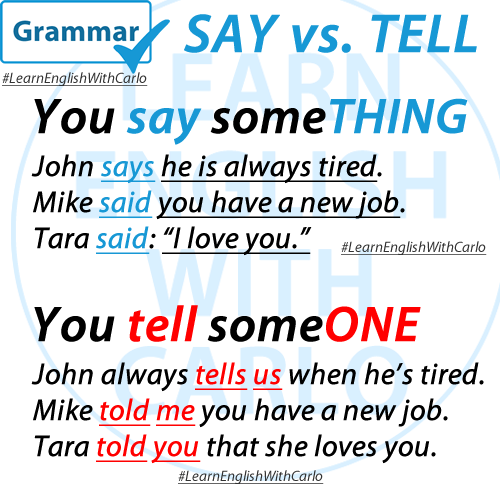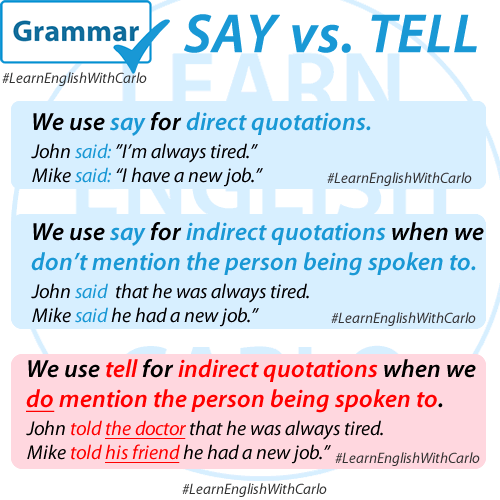SAY and TELL have similar meanings. They both mean to communicate verbally with someone. But we often use them differently.
The best way to remember say and tell is:
- You say something to someone
- You tell someone something
SAY is immediately followed by a noun clause (He said (that) he was right) or, if it is followed by a personal object, we include the preposition to (He said to his father that he was right).
TELL is followed by an object noun or pronoun (Can you tell me who is right?)

SAY
We sometimes use “to someone” after we use say, for example:
- He said to me that he was tired.
- Janet said to John that he had done very well.
We use say with direct speech, for example:
Paul said, “Hi Julia! How are you?”
Julia said, “Well, I’m having a birthday party tomorrow, would you like to come?”
Paul said, “I’m working tomorrow”
Julia said, “Oh, well you can come later if you want to”
More examples with say:
- Susan said (that) she was tired.
- Anthony says you found a new job. Congratulations!
- James said he loved her.

TELL
We follow tell with a personal object, for example:
- I told everyone it was time to go home.
We use tell for orders and advice using the structure:
tell + object + infinitive, for example:
- She told him to sit down.
There are some fixed phrases we always use tell with, not say.
- tell (someone) a story
- tell (someone) a lie
- tell (someone) the truth
- tell the future
- tell the time
- tell a joke
More examples with tell:
- Tania told Charlie, “Turn off the TV now, I have to study”
- David told me that he found a new flat.
- Could you please tell me what time it is?
